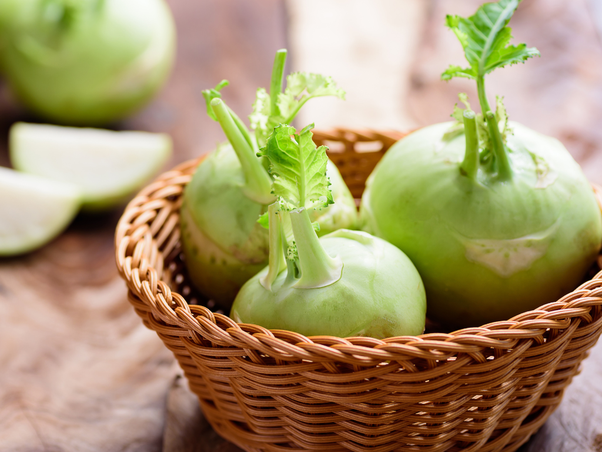
Hey there! I am here to talk about the vegetables that have the highest overall nutritional value. Now, you might be wondering why you should care about unfamiliar vegetables when you can easily grab a bag of carrots or broccoli at the grocery store. Well, my friend, the answer is simple - variety is the spice of life! And in this case, it's also the key to a healthier and more nutritious diet.
So, without further ado, let's dive into the world of unfamiliar vegetables and discover which ones are the real nutritional powerhouses.
Jerusalem Artichoke First up on our list is the Jerusalem Artichoke. Despite its name, this vegetable is not actually related to the artichoke at all. It's actually a type of sunflower, and its root is what we eat. Jerusalem artichokes are a great source of fiber, potassium, and iron. They're also rich in inulin, a type of prebiotic fiber that can help improve digestive health and boost immunity.
Kohlrabi Next up is Kohlrabi. This odd-looking vegetable is part of the cabbage family and has a taste and texture similar to that of broccoli stems. Kohlrabi is a great source of vitamin C, potassium, and fiber. It also contains glucosinolates, compounds that have been linked to a reduced risk of certain cancers.
Jicama Jicama is a root vegetable that's popular in Mexican cuisine. It has a sweet, crunchy flesh that's perfect for adding texture to salads or slaws. Jicama is high in vitamin C and fiber, and it's also a good source of potassium, magnesium, and iron.
Lotus Root Lotus root is a staple in Asian cuisine, and it's becoming more popular in Western countries as well. It's a type of tuber that's similar in texture to a potato but with a slightly sweet, nutty flavor. Lotus root is a good source of fiber, vitamin C, and potassium. It's also rich in antioxidants, which can help protect against cell damage and reduce inflammation.
Malanga Malanga is a root vegetable that's commonly used in Caribbean and Latin American cuisine. It has a starchy, slightly sweet flavor and a texture similar to that of a potato. Malanga is a good source of fiber, vitamin C, and potassium. It's also rich in vitamin B6, which is important for brain function and immune health.
Romanesco Last but not least, we have Romanesco. This stunning vegetable is part of the broccoli family and is characterized by its intricate, fractal-like appearance. Romanesco is a good source of vitamin C, vitamin K, and fiber. It also contains sulforaphane, a compound that has been linked to a reduced risk of cancer and improved heart health.
Now, you might be thinking, "Okay, these vegetables sound great, but how the heck do I cook them?" Don't worry, I've got you covered. Here are some ideas for how to prepare each of these nutritional powerhouses:
Jerusalem artichokes: Roast them in the oven with a little bit of olive oil and salt, or puree them into a creamy soup.
Kohlrabi: Slice it thinly and add it to a salad or slaw, or roast it with other vegetables for a delicious side dish.
Jicama: Cut it into sticks and serve it with your favorite dip, or add it to a stir-fry for some extra crunch.
Lotus root: Slice it thinly and stir-fry it with other vegetables and your favorite protein, or bake it into crispy chips.
Malanga: Boil it until tender and mash it with butter
If you found this answer helpful and informative, please give it an upvote! Your support will help others discover this information and learn more about the benefits of incorporating unfamiliar vegetables into their diet.
And if you want to stay updated on all things health and nutrition, be sure to follow me for more content like this. I'm always here to help answer your questions and provide helpful tips for living a healthier life. Thank you for reading!
www.quora.com

